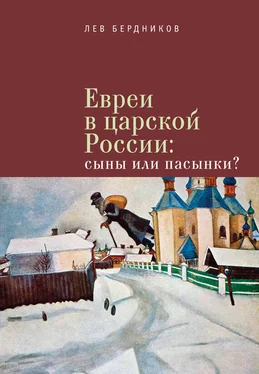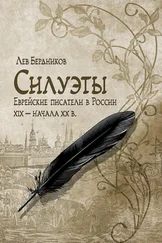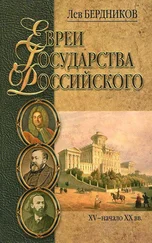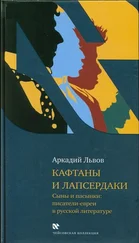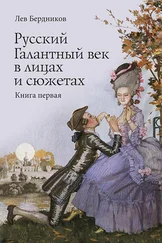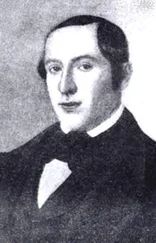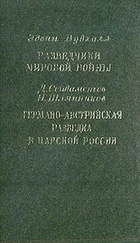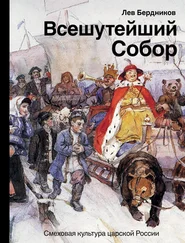Заметка в газете «Вече» на смерть Григория Иоллоса заканчивалась словами «Еще одним жидом стало меньше». &то предельно трагическая модель жизни российского еврея. Но даже если насильственная смерть вовсе необязательно являлась еврейским уделом, любой еврей в России чувствовал себя пасынком – в той или иной степени. Автор пишет и об этом, но главный акцент его историй все же на другом – на сыновстве, на том огромном, замечательном вкладе, который часто истово, «положа живот свой», вносили евреи в жизнь России, в самых разных сферах. И знание об этом укрепляет взаимопонимание русских и евреев, прославляет тот самый «русско-еврейский» культурный воздух, аналога которому в мире не было. И в этом, помимо образовательной, большая гуманистическая сила книги Льва Бердникова.
Россия – многонациональная страна. Национальные общины испокон веков трудились на благо России. Можно перечислять десятки и сотни армян, грузин, осетин, украинцев, многих и многих, которых можно назвать истинными сынами России. Все они достойны быть запечатленными в истории, в слове, чтобы широкий читатель знал о славных страницах жизни национальных общин в России. К сожалению, таких работ, – увлекательно написанных для широкого читателя – очень немного. И книга Льва Бердникова является наглядным примером того, как надо хранить память о нашем прошлом.
Юрий Табак
Jews in Russia: Alien Kin. Foreword
The title of Lev BerdnikoVs book is surprisingly accurate. Throughout most of their history the Jews have had to eat the bitter bread of exile and survive in foreign lands. But they did not merely survive, sacrificing everything for the sake of sustenance and shelter. They had the Torah, which they continued to follow, and they always tried to solve the excruciating task how not to lose their Jewish identity, devotion to their faith and their ancient community, and at the same time to live as law-abiding citizens. The latter was particularly important because the Jews constituted a religious minority and were generally distrusted by the populace of all of their host countries, especially in Europe. This was to be expected; after all, from an early age good Christians were taught from the church pulpit that the Jews had crucified God. And the main Jewish professions – money-lending, trade, innkeeping (there were often no other choices) – did not contribute to their non-Jewish neighbors' good will. These people who prayed in a strange language and dressed in strange clothes frightened their children, and did not often venture out of their neighborhoods or ghettos. But there were times when Jews' education and intelligence were prized by kings and nobles, and there were those who made brilliant careers at court.
How to preserve one's Judaism and still remain a Jew and law-abiding citizen in one's country of residence? The Jews had to deal with this question for centuries, to develop a special way of dealing with the powers that be and with the predominantly hostile population. Very early, even in the Talmud, the principle for life in the Diaspora was «dina de Malchut – Din» or following the law («the law of state is the law», Nedarim 28a Gittin 10b). Jews consistently obeyed this obligation and served their new homelands conscientiously, if often without reciprocity.
All of this fully applies to the life of Jews in Russia. They lived in Slavic lands from ancient times – from the era of Kievan Rus. We know the names of many Jews who were in one way or another connected with Muscovite Rus' and then with the Russian state during the fifteenth through seventeenth century. But the central act in the historical drama of the Jews in Russia starts with the glorious times of Peter the Great and especially Catherine II. After Russia's partitions of Poland, these lands, together with the former territories of the Polish-Lithuanian Commonwealth, combined to create in the Russian Empire the largest Jewish community in the world. Since that time, the fate of the Jews and Russians on Russian territory became inseparable, interwoven in most intimate ways.
Jews in Russia had much to endure – including hard life in the ghetto, humiliation and persecution, and at times blood libels and horrifying pogroms. But at the same time the Jews provided Russia with many outstanding citizens and true sons of the fatherland – generals, poets, scientists and businessmen. Over the centuries a special Jewish-Russian intelligentsia culture was born, with its own unique «Jewish-Russian» cultural atmosphere. But the prominent role of many Jews in Russia did not prevent them from often being treated as second-class citizens, always at risk of being humiliated.
These are the issues Lev Berdnikov describes in his new book, trying to solve the eternal question: have Jews in Russia been its children or its stepchildren? The tragic dualism of Russian Jewry is suggested by the book's two epigraphs, by Saul Gruzenberg and Alexander Gorodnitskii, each of whom sees the fate of the Jews from his own point of view. Starting with the Jews of Muscovy, the author leads us down Russia's historical path, along which Jews left many significant marks but invariably found themselves in a kind of limbo, suspended between the roles of children and stepchildren.
Thus the Jewish doctor of Venice, Leon Mistro, was brought in to minister to Ivan Ill's ailing young son. Mistro treated the heir honestly and unselfishly, but the treatment was unsuccessful, and the unlucky healer was beheaded. He had been caught in the middle of a conspiracy: the heir had been poisoned and Leon tricked into trying to cure a non-existent disease. A similarly tragic fate befell another Jewish doctor – Stefan von Gaden, who was probably the best doctor at the tsar's court. He was accused of poisoning Tsar Fedor Alekseevich and killed after brutal torture.
Faithful sons thus shared the fate of hated stepchildren. But of course not all Jews experienced such unhappy endings. General Mikhail Grulev, for example, became one of Russia's most prominent military leaders and died peacefully at the age of 86. But he, as a Jew, had to endure a lot on the way to the heights of military glory. Equally difficult were the lives of the artist Moses Maimon, the writer Victor Nikitin, the folklorist Paul Shane, the famous photographer Konstantin Shapiro, all of which are described in this book.
To achieve success in any sphere of Russian life and prove that they could identify themselves as «true sons of Russia», Jews often had to make a very difficult step – to accept baptism. As the historian Simon Dubnov formulated this difficulty: «for Jews the only way to win the favor of the government was to bow before a Greek cross». Because of the laws limiting Jews to the Pale of Settlement and severe restrictions against living in large cities, getting a university education, taking part in professional activities, and so on, a baptismal certificate served as a ticket to the larger world and a better life.
Читать дальше
Конец ознакомительного отрывка
Купить книгу
